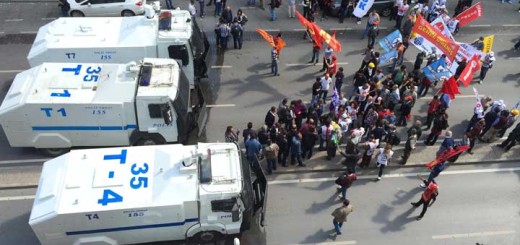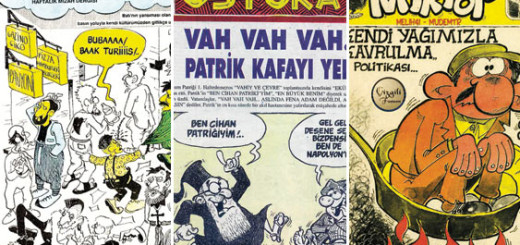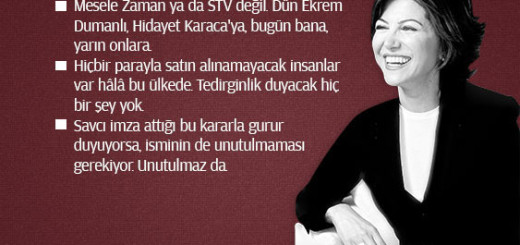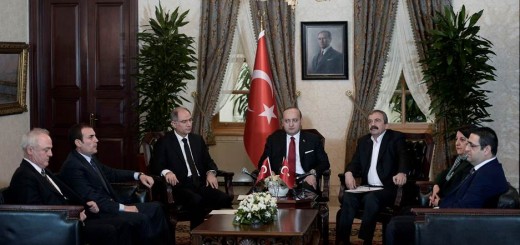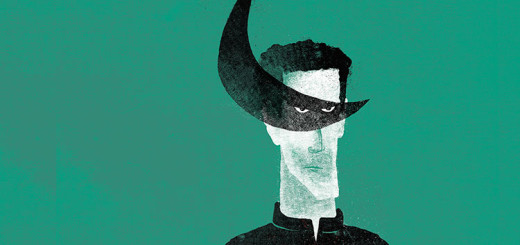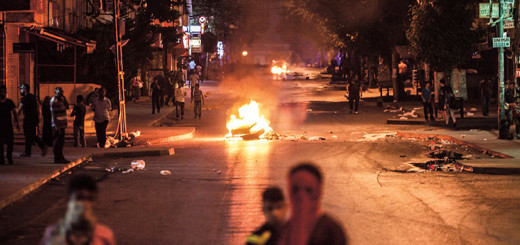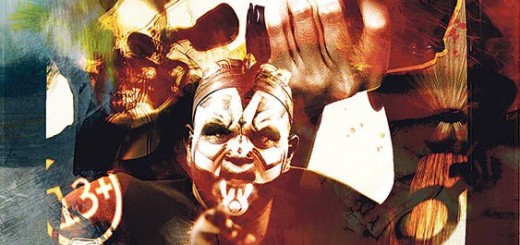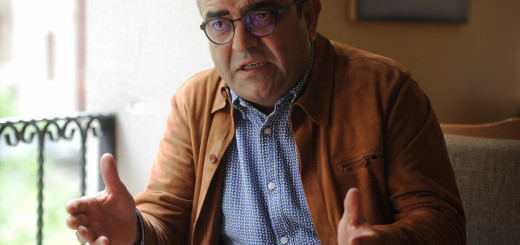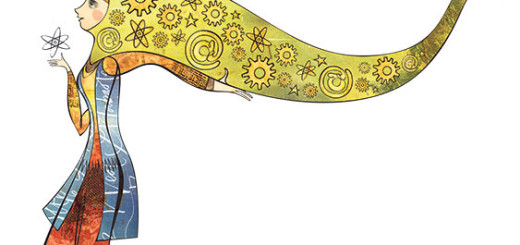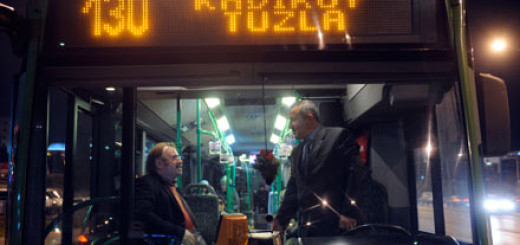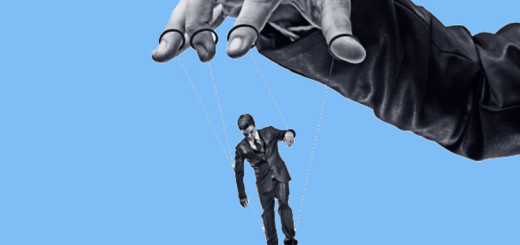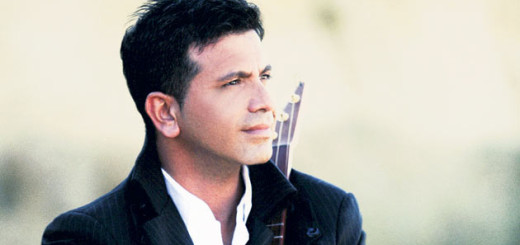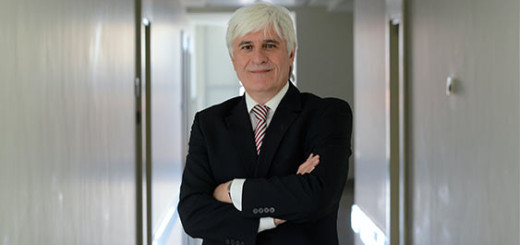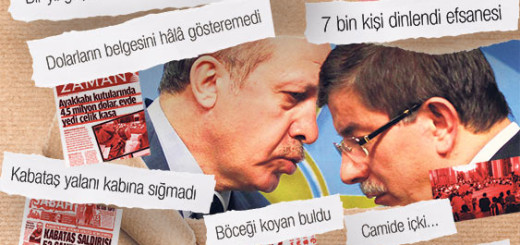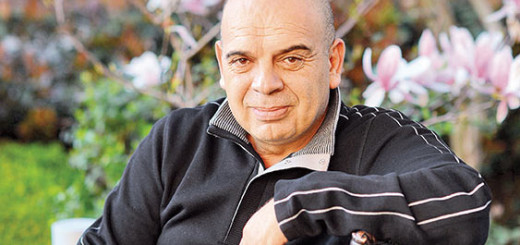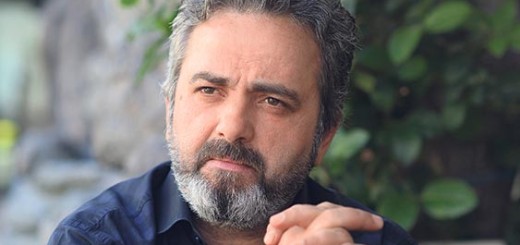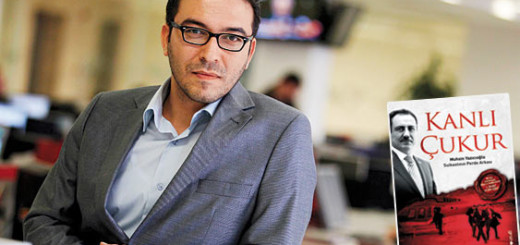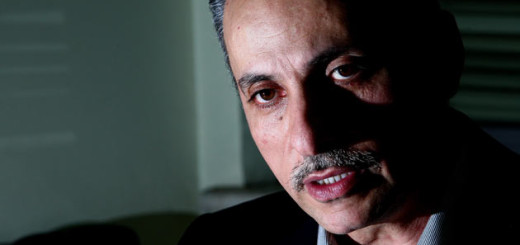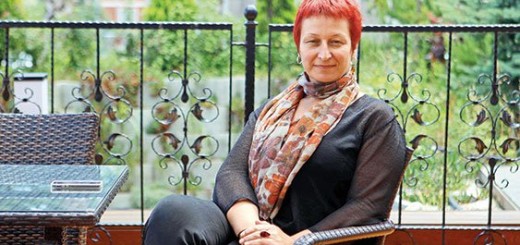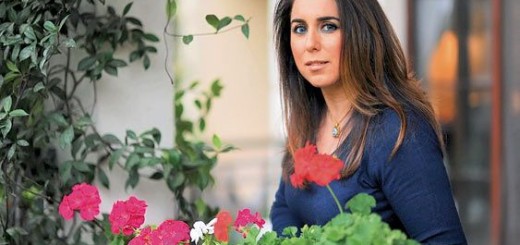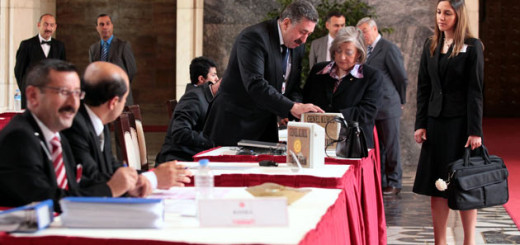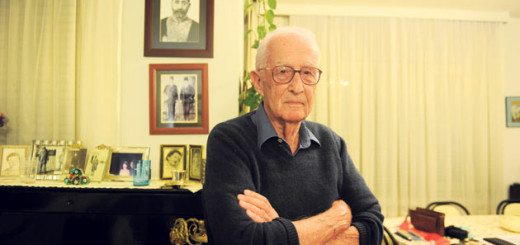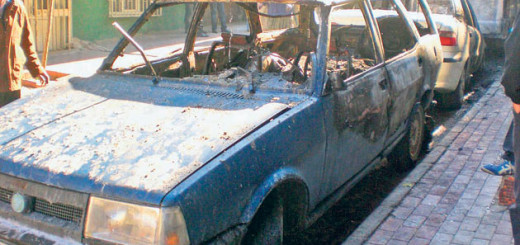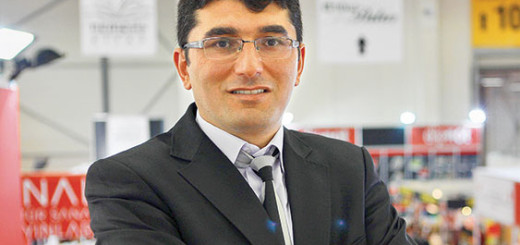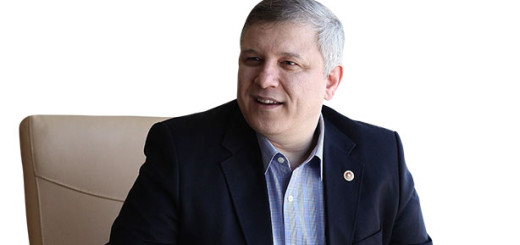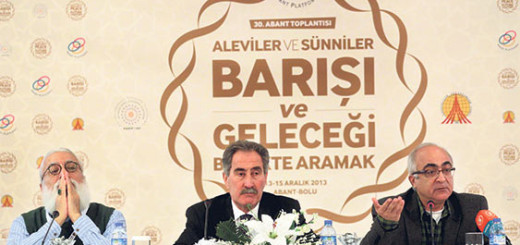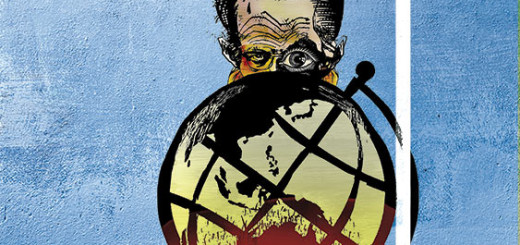
Necdet Subaşı (Photo: Mustafa Kirazlı, Sunday’s Zaman)
With the government having revitalized the Alevi initiative after a two-year interruption, the man who served as the coordinator of the first Alevi initiative and moderator of the workshops held as part of this initiative said issues such as the violations of religious rights, the status of Alevi clerics and cemevis need to be resolved in order to prevent meddling into Alevi affairs by foreign countries.
In an interview with Today’s Zaman, Dr. Necdet Subaşı, a sociologist of religion, lamented that the workshops and final reports on Alevis were not paid enough attention by the political authority because of elections and the environment that existed in the country back then. Stressing that the state has for the first time confronted Alevism, he said he is happy to see that the process was resumed by the government.
Subaşı predicted that the short-term issues that cause offense to Alevis would be addressed effectively while the long-term problems may be difficult to handle. Questioning past grievances, language and discourse, he stressed that mutual empathy may be a way to facilitate the resolution of the Alevis’ problems.
As for the interest of foreign countries in Alevis, Subaşı noted that he does not find the attention paid unusual. “I do not find political or sociological investment by a country to protect its interests weird,” he said, adding, “In international relations, countries seeking more power do some individual planning to achieve their goals.”
“They create tensions by meddling in the internal affairs of other countries. They keep the grounds of conflicts alive and pay attention to the sensitive narratives and stories of other countries. This is normal,” he explained.
With regard to Muslim scholar Fethullah Gülen’s efforts to mend relations between Alevis and Sunnis, Subaşı said Gülen’s bold recommendation on having mosques and cemevis on the same site for dialogue shows the courage to deal with these problems and eagerness to settle these issues before it is too late.
Here are excerpts from the interview:
Where was the process stalled, while there was some progress in the Alevi initiative?
Because of the election campaigns back then, the referendum process as well as other political considerations, the workshops and final reports were not adequately reviewed and considered by the political administration. The matter was not discussed thoroughly because of the overall atmosphere in the country. But there is some good in this. During this period, Alevis had the opportunity to review their own problems. The goal of the workshops was to focus on the problems, the origins of these problems and methods that could be devised to address these problems rather than talking about them in public. However, the process was weakened in this atmosphere. Many Alevis argued that the process was frozen. In fact, this is not the case. The process has just started. The state, for the first time, confronted Alevism. And of course, there is a price for this.
So, are you saying that the past two years were part of the period for the state to internalize the problem?
The state was aware that some part of its body was aching. The workshops just identified the parts that ache. What is next is to try to solve this issue that is not local by reliance on a more holistic and comprehensive approach. The recent decision to resume the process is quite appropriate. If a fresh new start had been adopted, the issue would have been skipped. Aside from the long-term problems, I hope that the short-term issues that cause offense to Alevis would be addressed and effectively resolved.
Is it possible that the Alevis do not have faith in the initiative just because they view it as a call for true Islam or the imposition of the Sunni version of Islam?
It is natural at the beginning for such concerns to emerge. One day the state tells you that it is ready to listen to you. This comfort of the state, which has shown no such practice so far, may raise concerns among people who have been dealing with their problems all by themselves. However, these concerns were removed in a very short time. All Alevi groups joined the workshops. Addressing the sentiment of being excluded and offended was a priority. If an Alevi now has no expectation from society and feels excluded, we are responsible for this. Questioning the past grievances, the language and discourse, mutual empathy, throwing out the notion of “us” and “them” may bring relief to these people and the process as well. However, sadly, politics requires more practical and influential steps.
‘I do not find interest by Iran and Germany in Alevis unusual’
Did the naming of the third bridge after Sultan Selim sacrifice the settlement to politics? Do you think that naming the bridge after him was proper and necessary?
What an average Sunni Muslim attributes to Yavuz Sultan Selim is not what the Alevis see in him. Yavuz, who the Alevis associate with tyranny, brutality and bloodthirstiness, is a person Sunni Muslims admire and respect. In the eyes of the Sunni Muslims, Yavuz Sultan Selim is a historical figure who united the Muslim communities. We are talking about a person who is defined by the parties differently. How did this nation manage to become polarized around the same person? This is not easy to solve. These are things we need to discuss with reference to high-level criteria of humanity.
It has been observed that some illegal organizations pay special attention and efforts to have the Alevis on their side.
This can be said. But we need to consider the questions as to why these people are being provoked or plots being staged by using these people. The state could question the forces behind the individual perpetrators. But the following should be deeply investigated: What can I do to protect my citizens against the potential for being provoked and used? To do this, good faith, high ideals and sensitivities should be preserved; and no attempt at exploitation should be allowed. The people and the state have separate duties and responsibilities in this matter.
What is the reason for the special attention coming from countries such as Iran and Germany when it comes to the Alevis?
I do not find this attention unusual. I do not find political or sociological investment by a country to protect its interests weird. True, this is something that is unpleasant in terms of diplomatic terms and customs. However, in international relations, countries seeking more power do some individual planning to achieve their goals. They create tensions by meddling with the internal affairs of other countries. They keep the grounds of conflicts alive and pay attention to the sensitive narratives and stories of other countries. This is normal. By normal, I would not suggest that this is reasonable and acceptable. But there are such things in international relations. If you are unable to link your relations with your citizens to an ethical, emotional and legal assurance, you cannot create a framework for coexistence.
Demands raised by the Alevis in Europe and in Turkey are different. Who are you talking to for a lasting settlement?
When the state shows its sincerity to settle this problem, different groups will come together around a certain framework. It would be sad and arrogant to make attempts so that the people we are talking to adopt the same concept. The Alevis may be divided by nature. Or they might have emerged in diverse forms through a natural process. What we need to do is not to question the ethical and moral ground of these pieces. Only the state is able to properly respond to the Alevi demands and satisfy the parties to the issue.
Is there a legal ground where the Alevis could discuss all of their problems?
In fact, there is no legal basis or ground for any religious group in Turkey. Because of Turkey’s unique sense of secularism, there are serious loopholes concerning the extent to which the state would consider the demands and issues of its citizens.
It is being argued that the Alevi issue is much more complicated than the Kurdish issue. Why do you think this is the case?
This is the case because the Kurdish issue is artificial. It is a fake problem in the modern sense caused by the concepts of nation-states. The state intervened with control mechanisms in this matter. However, the Alevi question goes way back in historical terms. Today, an Alevi makes reference to Karbala when speaking about his problems and pains. And sometimes he may refer to you as Yezid or Kuyucu Murat Paşa. There is such a sad story out there. This story is not wrong or fabricated; we should understand the sentiments and emotions of this group that has been sidelined throughout history. We cannot solve these problems in a different region or in a place where our codes are nonexistent. We will discuss this matter at home and will resolve the problems together.
Fethullah Gülen recommended, “The mosque and cemevi could exist side by side.” How would you comment on this, and what do you think of the gist of this recommendation for the sake of achieving a solution?
Everybody is aware of Fethullah Gülen’s efforts to mend relations between the state and Alevis, between the Alevi people and the Sunnis or other units of the society. The recommendation on mosques and cemevis is a contribution to the literature of discussion. Today, every reasonable actor and person says that we need to show the courage to deal with these problems and eagerness to settle these issues before it is too late. Regardless of who makes the suggestions on this matter, all should be heard and considered sincerely for the sake of achieving social peace and settlement. We do not have the luxury to act stubbornly in times of crisis. We need to be open to suggestions to deal with the crisis. We need to make a certain decision and resolve the problem without the use of polemics because this country is our yard, and we need to protect it.
Why is the state assuming power to make a decision on the status of the cemevis? Why is the state assuming a role if some people refer to cemevis as their legitimate and valid places of worship?
This is not something that the state must decide and settle. It does not have to express its opinion on beliefs and faiths and serve as an arbiter. However, at this point, it is seen that there are things that the state has to do in respect to what happens to Alevis and how the Alevi identity is preserved. In fact, this should not have been the case. The state should not have assumed a role in this matter. But today, there is no entity or structure other than the state that would assume the responsibility and a role in this matter. It needs to identity the status of the cemevis; it can no longer view these places as some secret places. What will happen to these places after the state defines their legal status is a decision that the Alevis would make.
Change in PKK is a message to Alevis
How would you comment on the appointment of Hülya Oran from Dersim, a.k.a., Bese Hozat, as co-president by the KCK [Kurdistan Communities Union]? Is this relevant to Öcalan’s emphasis upon the union of Islam he made in his Newroz message?
The emphasis upon Islamic brotherhood caused anger among the Alevis because they actually wanted a reference to Alevis in his messages in the process of negotiation between Öcalan and the state. But he did not. This time, contemporary Alevi actors started to explain the process. This went as far as the incident of İdris-i Bitlisi. Some criticisms were raised to note that Yavuz made a deal with Bitlisi to destroy the Alevis and that Abdullah Öcalan is now the new Bitlisi. Back then, the BDP [Peace and Democracy Party] Tunceli branch chair resigned from his party. The Alevi Kurdish groups within the PKK were disturbed by this move. But this change in the top administration is a step that will fix the contradictory relations between the Alevis and Sunni Kurds.
Will the establishment of a commission of inquiry to investigate the Sivas, Çorum, Maraş and Başbağlar incidents serve as an important step for the sake of settlement?
Of course it will. In the new workshops, moves should be taken to identify what could be done to resolve these problems. In the previous workshops, we generated reports out of the deliberations and discussions on how these problems would be conveyed to the public sphere, the violations of religious rights, the status of the Alevi clerics and cemevis. At this time, consultations should be made with the parties on how to discuss the issue to avoid tension. Resolving these historical incidents, which stand like a dark spot in the minds of the Alevis, will bring relief to them and other communities that feel they have to explain their positions with respect to the accusations associated with these tragic incidents. No satisfactory answer has been found to the question as to what happened in Madımak so far. Let us say that the incidents in Sivas, Maraş and Çorum are investigated and that it becomes clear that Madımak was a provocation. At that point, what we all need to do is to question ourselves as to how we became part of this provocation. Had we been able to resolve Madımak, we would have resolved Gezi as well.
There are some demands suggesting that Tunceli should be renamed Dersim and that the name of Sabiha Gökçen Airport should be changed.
There are now reports noting that the new universities in Nevşehir and Tunceli will be named after Pir Sultan Abdal and Hacı Bektaş-ı Veli. Will all these steps address the Alevis’ concerns and assuage them?
If the arguments, concerns and accusations are being raised in reference to these objects, then they will; however, these steps would not solve everything.
